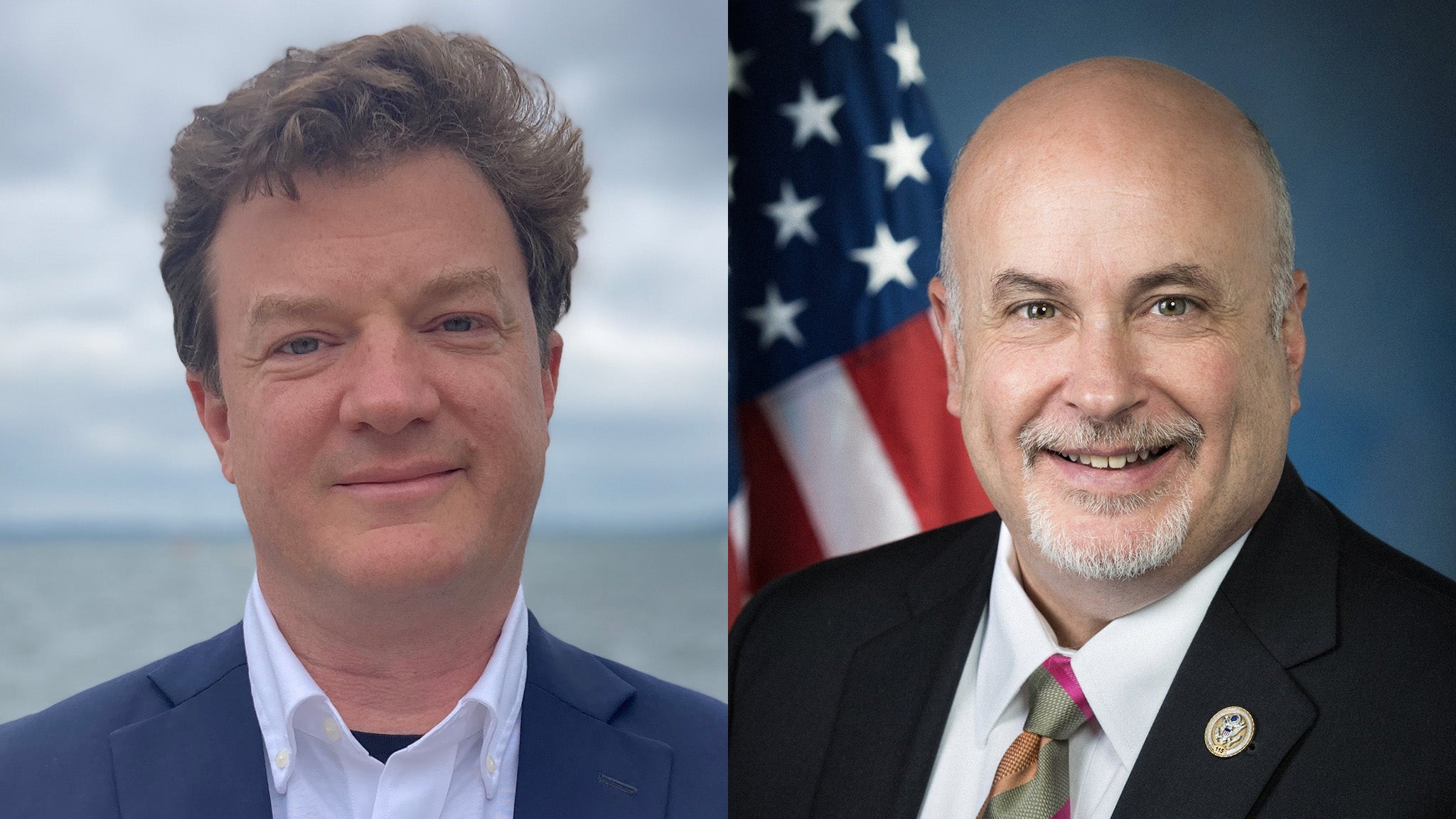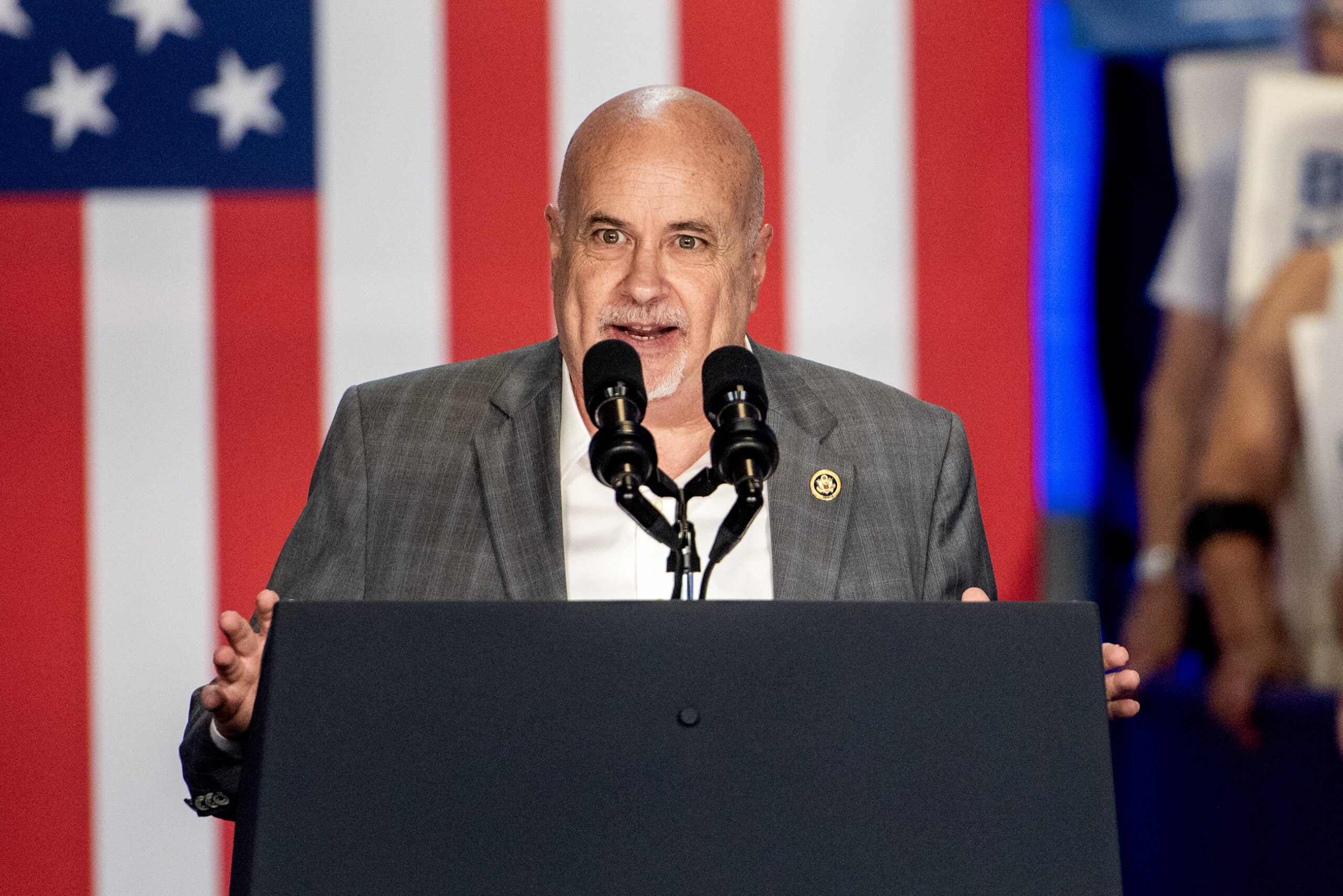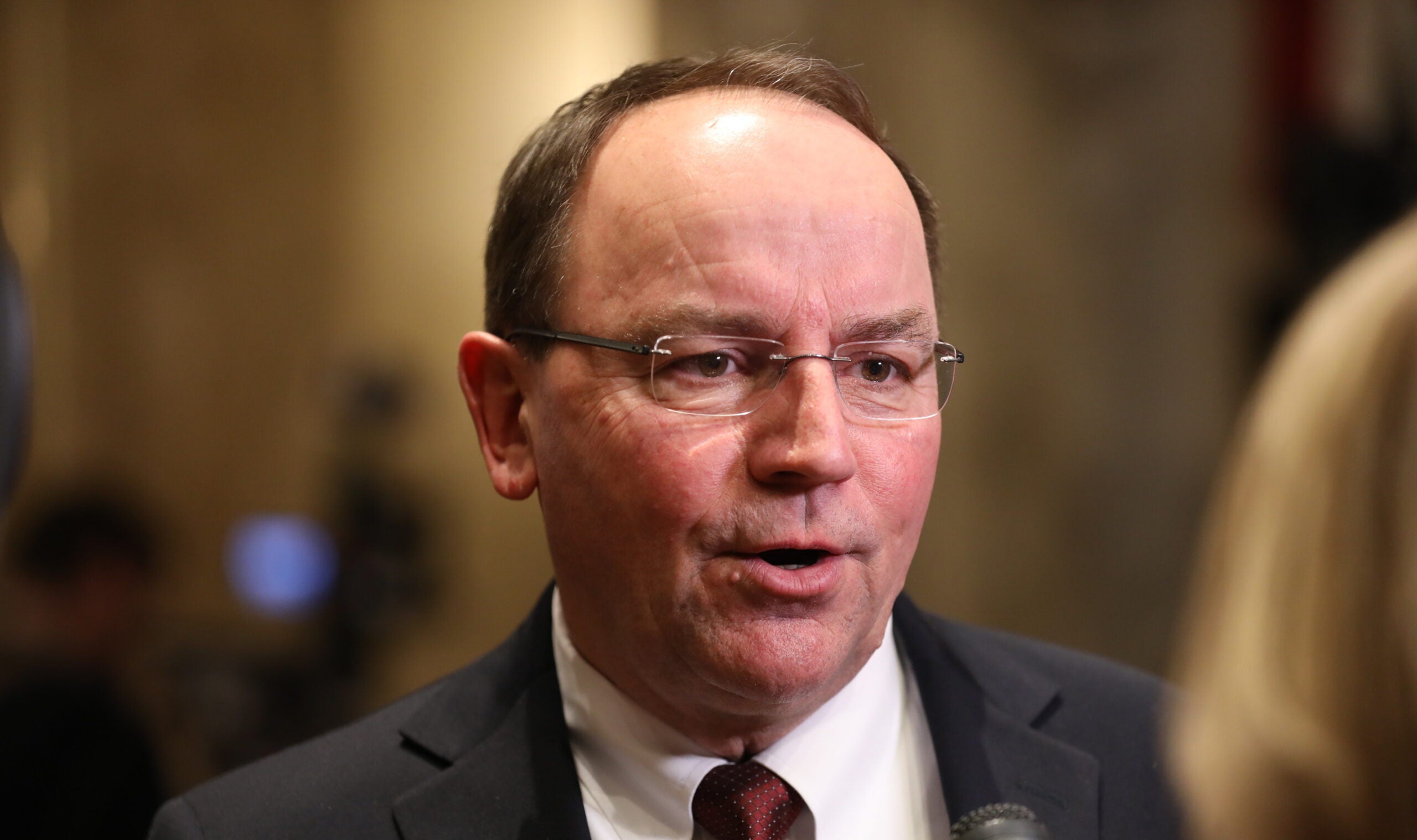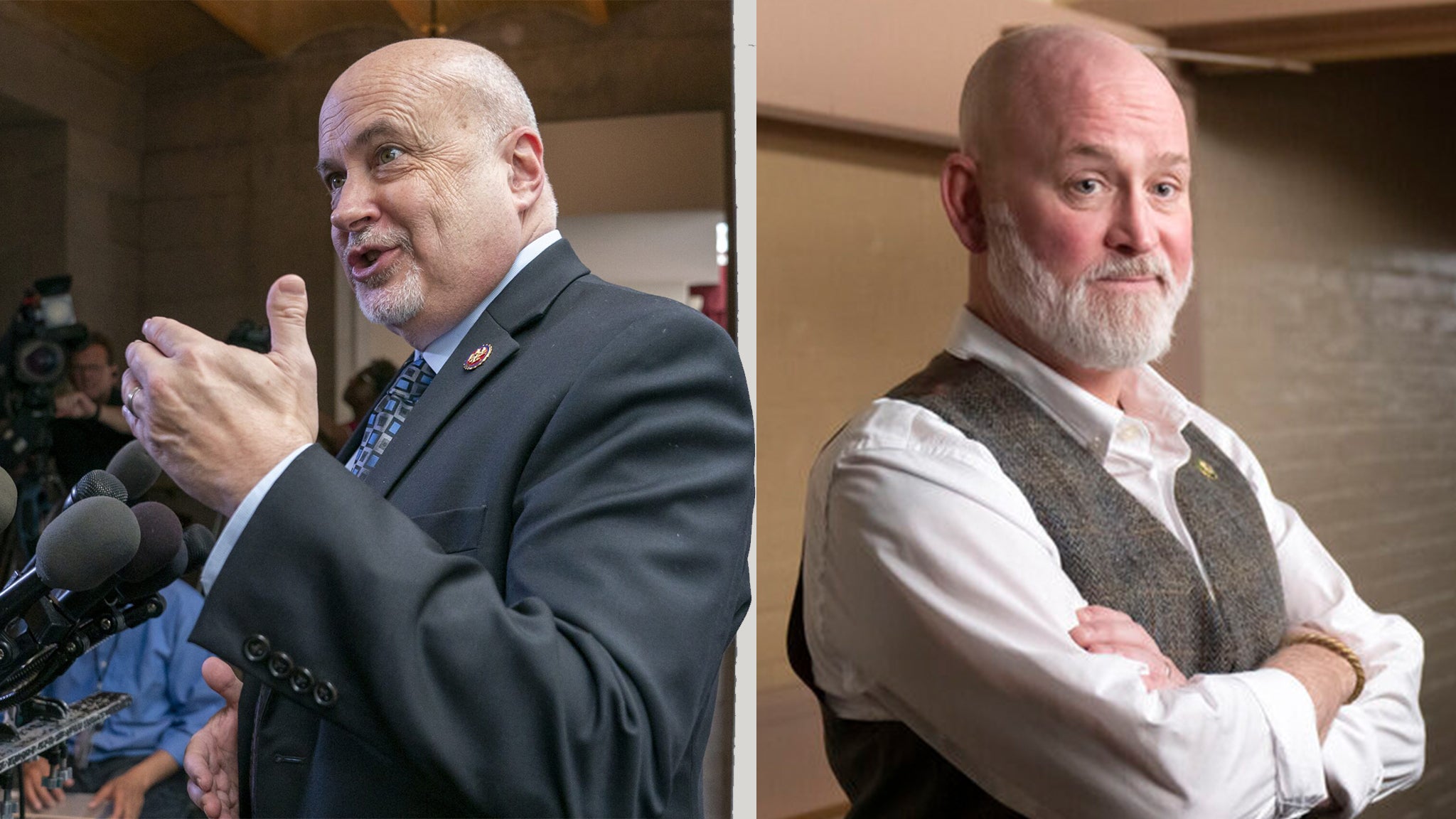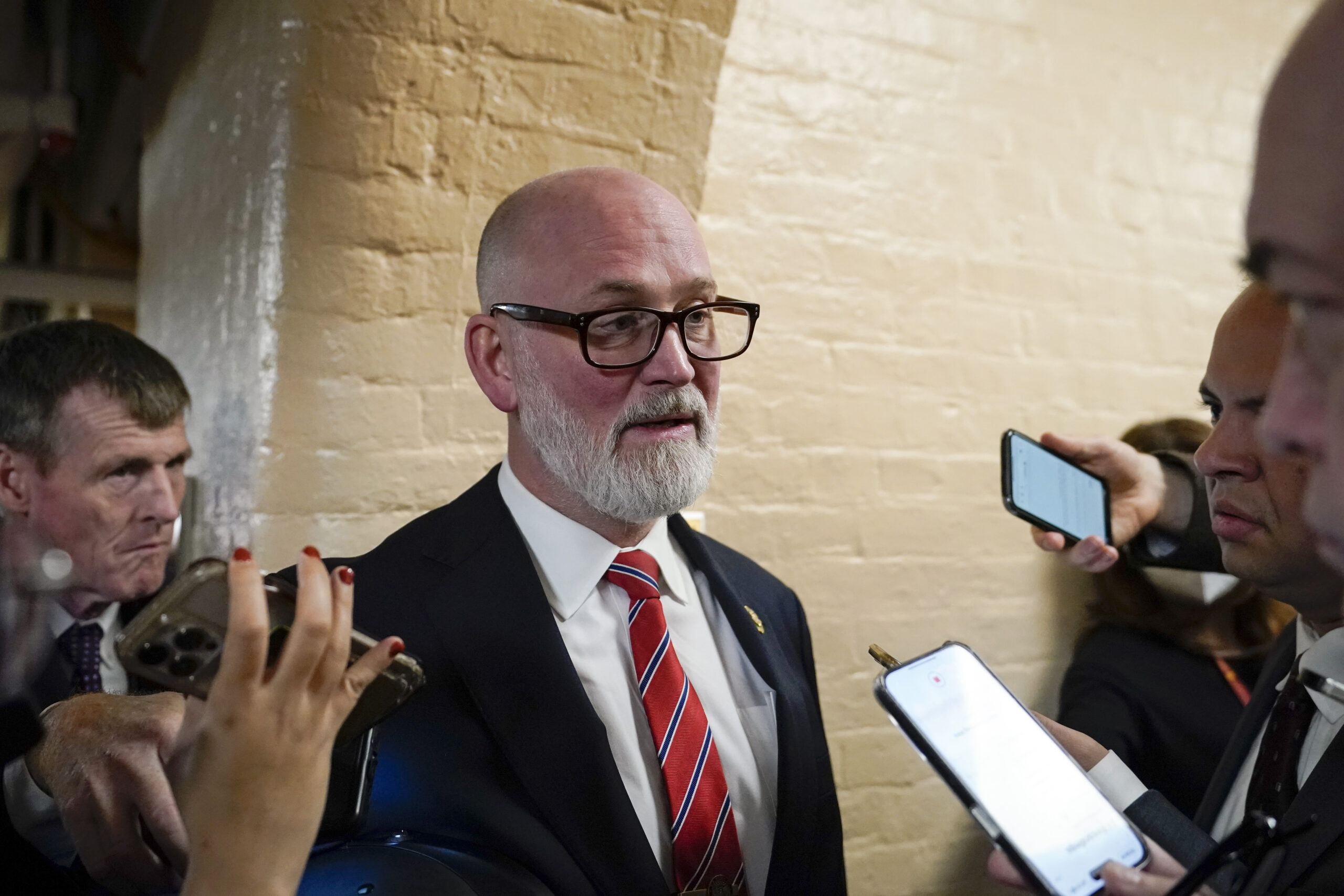Voters in south central Wisconsin’s 2nd Congressional District have a choice in this year’s election between longtime Democratic U.S. Rep. Mark Pocan and Eric Olsen, his Republican challenger.
Two years ago, Pocan took more than 70 percent of the vote against Olsen in the deep blue district, which includes the city of Madison and the rest of Dane County. The district also includes Iowa County, Lafayette County, Sauk County Green County and parts of Richland and Rock Counties.
Now, Pocan and Olsen are headed for a rematch on Nov. 5.
News with a little more humanity
WPR’s “Wisconsin Today” newsletter keeps you connected to the state you love without feeling overwhelmed. No paywall. No agenda. No corporate filter.
Pocan, who lives in the Town of Vermont, has held the seat since 2013, when he succeeded then-U.S. Rep. Tammy Baldwin as she ran for the U.S. Senate. Pocan chairs the Congressional Equality Caucus, which focuses on LGBTQ+ issues. He previously chaired the Congressional Progressive Caucus.
Olsen is a Madison-based attorney who specializes in property rights. He defeated Charity Barry during the GOP primary in August.
Pocan, Olsen diverge on issues ranging from abortion to gun restrictions
Pocan and Olsen squared off this month during a forum moderated by University of Wisconsin-Madison Political Science Professor Barry Burden.
During the debate, Pocan reiterated his support for abortion rights and called for codifying into federal law protections previously established under Roe v. Wade.
Olsen asserted that “abortion is killing,” and argued the federal government should focus on supporting parents so people feel they have choices other than abortion.
Olsen added, however, he believes regulating abortion is best left up to the states.
“I do not think that in a federal office at this point in time, there’s room to meddle in that,” Olsen said.
Both men agreed that the current immigration system is “broken,” though they disagreed on the efficacy of a federal immigration and border security package that’s stalled in the U.S. Senate.
Pocan supports that bill, which would have included increased funding for border enforcement. He blasted former President Donald Trump for lobbying against the package.
“Even though there was a bipartisan bill, Donald Trump said ‘no,’” Pocan said. “He wanted this to continue to be a political issue, and the Republicans didn’t proceed.”
Olsen said the bill “would have accomplished precisely nothing other than spend a lot of money.”
The pair also diverge on the issue of gun regulation, with Pocan calling for background checks on all gun sales, as well as restoring a ban on assault weapons.
“I can’t tell you how many times in Congress there’s a mass shooting and, all too often, we have a moment of silence and we have no moments of action,” Pocan said during the debate. “It’s time for this country to have action when it comes to gun violence.”
In contrast, Olsen accused the Democratic Party of wanting to “chip away at our right to keep and bear arms.”
“To solve the gun violence problem, we need to prioritize mental health, we need to fight poverty, and we need to figure out a way to get along together,” Olsen added. “But I submit to you that we do not have, and never had, a gun problem in this country. We have a mental health problem, a poverty problem, and a problem that we have to learn to get along.”
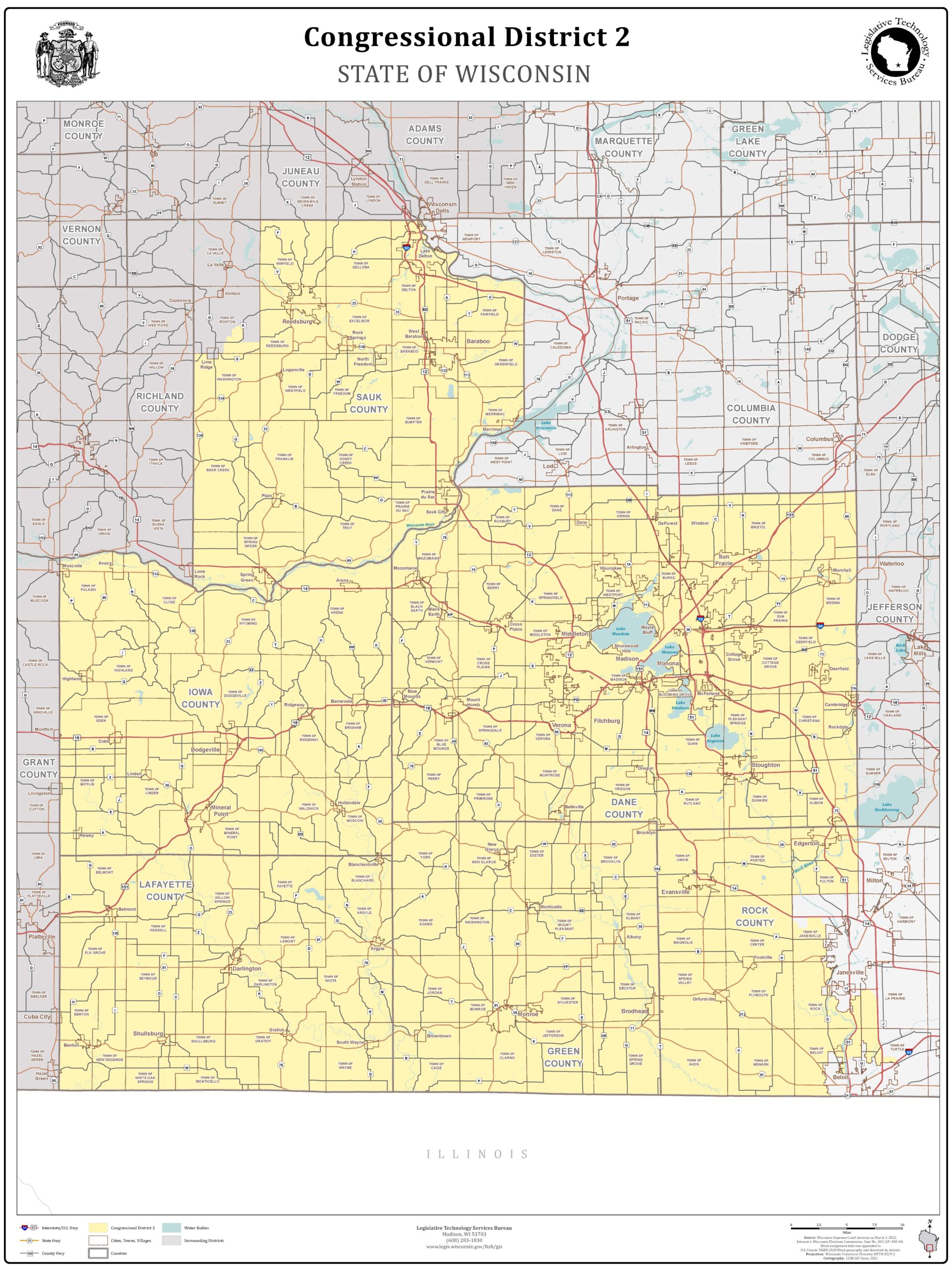
During the forum, Burden asked what Congress should do about climate change, noting that it’s is worsening the frequency and intensity of natural disasters like Hurricanes Helene and Milton.
In his initial answer, Olsen did not mention or acknowledge climate change. Instead, he said the federal government has “allowed our finances to be very badly mismanaged,” so that not enough funds are available to help hurricane victims. Olsen asserted that “our priorities are upside down,” and complained about taxpayer money going to help “people flooding across the border illegally, who are being put into hotels.”
There is a federal program administered by the Federal Emergency Management Agency to shelter migrants known as the Shelter and Services Program. However, that program is funded by the U.S. Customs and Border Protection, and despite false claims spread on social media, money from FEMA’s disaster relief was not diverted for the SSP program.
In his response to Burden’s question, Pocan said the solution begins with “accepting that climate change is real.” He touted tax credits for renewable energy and electric vehicles that were approved as part of the federal Inflation Reduction Act. And Pocan said such incentives need to be expanded.
“I have eight and a half kilowatts on my house,” Pocan said. “I gotta tell you, there’s nothing quite like getting that bill in late spring for $13 for your electricity. That’s pretty cool.”
In his rebuttal to Pocan’s answer, Olsen called Pocan a “career politician” who’s “gotten nothing done.”
“If the Democrats are aware that climate change is real, then they should be getting ready for these disasters that are inevitably going to occur so our people don’t get hurt by them,” Olsen said.
Olsen and Pocan did reach some level of agreement on the issue of marijuana. Both support changing federal banking law so banks can accept money from cannabis businesses without fear of criminal liability.
And, during the debate, Pocan said it’s “backwards” that cannabis is treated as a Schedule 1 drug in the same category as heroin. Pocan’s been a vocal advocate for legalizing marijuana at the state and federal level.
Olsen said, while he personally believes that marijuana use is “actually kind of a problem for people,” he doesn’t believe the federal government should “meddle” to stop adults from using the drug.
“I believe that marijuana should not be on the federal schedule,” Olsen said. “I don’t think the federal government should have anything at all to do with the regulation of marijuana.”
Wisconsin Public Radio, © Copyright 2025, Board of Regents of the University of Wisconsin System and Wisconsin Educational Communications Board.

